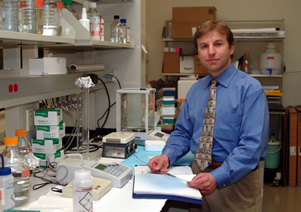Pennington Biomedical Executive Director Selected to Train International Physicians on Diabetes Management
For more information, contact our Media Relations Manager, Ted Griggs, 225-763-2862 or our Communications Director, Lisa Stansbury, at 225-763-2978. Our news email box is also available at news@pbrc.edu.
Released: Tuesday, April 22, 2014BATON ROUGE, LA - Dr. William T. Cefalu, executive director of Pennington Biomedical Research Center at LSU, has been selected by the American Diabetes Association (ADA) to participate in an international medical program training physicians in Indonesia and Vietnam.
 William T. Cefalu, M.D.
William T. Cefalu, M.D.Pennington Biomedical Research Center Executive Director and Douglas L. Manship Professor in Diabetes
The Southeast Asian region - including the countries of Indonesia and Vietnam - is experiencing a significant rise in the number of new cases of diabetes. According to the International Diabetes Federation, 72 million people in the region were affected by the disease in 2013. This number is expected to increase exponentially by 2035.
To address this alarming growth the ADA and their partners in each of the Southeast Asian countries developed a comprehensive training program designed to increase competency in the management of diabetes.
"In the U.S. we have access to technologies and new knowledge on early detection and treatment of diabetes that needs to be shared - in particular, our ability to prevent or delay the complications of the disease with a combination of lifestyle and medical strategies," said Cefalu. "The rate of new diabetes cases in Southeast Asia is outpacing the number of new U.S. cases. It is important for us to bring this information to resource-poor regions so physicians on the ground can apply that knowledge to their population in need."
In Indonesia last week Dr. Cefalu and Dr. Robert Ratner, the ADA's chief scientific and medical officer, participated in a comprehensive physician training program in the city of Surabaya. The ADA partnered with the Ministry of Health and the Indonesian Society of Endocrinology in the effort Partnership for Diabetes Control in Indonesia. Immediately following the program in Surabaya, Dr. Cefalu traveled to Vietnam to participate in the International Specialized Training Education-Diabetes Program or iSTEP-D, a similar training program in Hanoi. The ADA collaborated with the Vietnamese Association for Diabetes and Endocrinology on these outreach efforts.
In each country, Dr. Cefalu provided updated information on diagnosis, screening and treatment of diabetes specific to the resources and health practices available in each country. He also discussed management of individual cases as a method of helping local physicians enhance the analysis of each diabetes patient.
"This is an area where U.S. researchers at Pennington Biomedical and at our sister LSU campuses like the LSU Health Science Centers - as well as the ADA - have the expertise and the know-how to be of service. We live in a global community and to be asked to share our knowledge of what works in the treatment of diabetes is an honor. I look forward to returning to the region over the next several years to assess the impact of these important programs," said Cefalu.
As a diabetes researcher, Cefalu has been involved with the ADA for many years and he currently serves as editor-in-chief of their scientific journal Diabetes Care.
###
The Pennington Biomedical Research Center is at the forefront of medical discovery as it relates to understanding the triggers of obesity, diabetes, cardiovascular disease, cancer and dementia. It is a campus of Louisiana State University and conducts basic, clinical and population research. The research enterprise at Pennington Biomedical includes approximately 80 faculty and more than 25 post-doctoral fellows who comprise a network of 44 laboratories supported by lab technicians, nurses, dietitians, and support personnel, and 13 highly specialized core service facilities. Pennington Biomedical's more than 500 employees perform research activities in state-of-the-art facilities on the 222-acre campus located in Baton Rouge, Louisiana.


